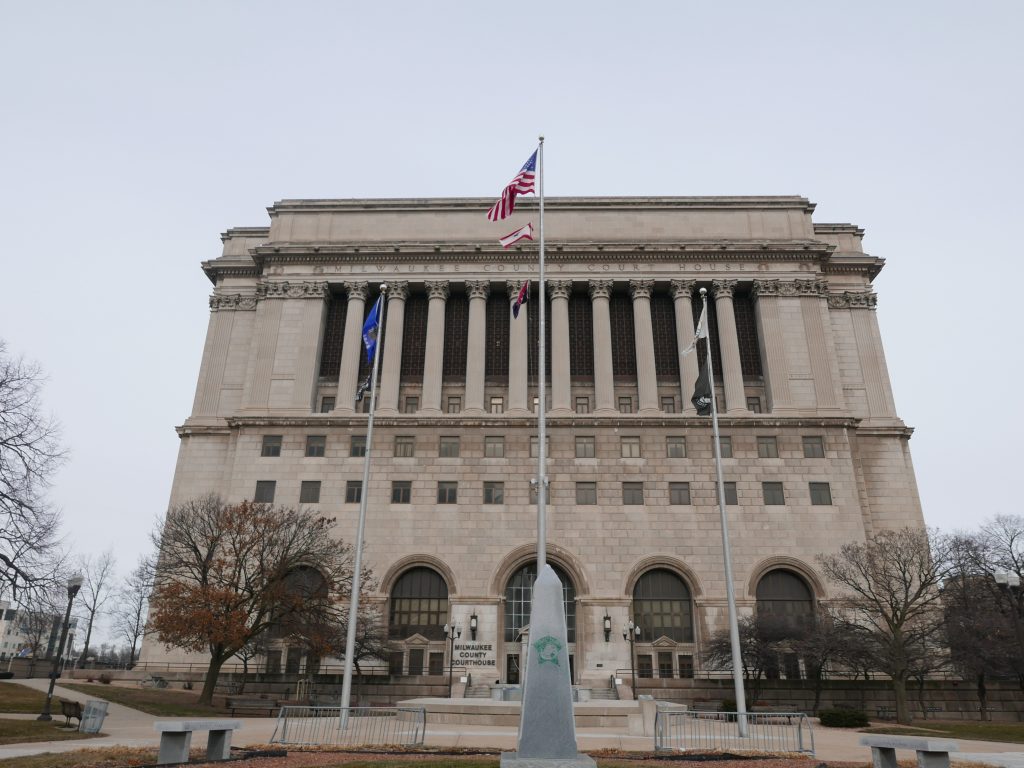Assembly Bill Would Provide Funding with Substantial Restrictions for County
County would see a revenue increase, but with substantial restrictions. Gov. Evers promises veto.
After announcing the framework last week, Republicans in the Wisconsin State Assembly released their local government funding legislation. In addition to unfreezing state aid levels that have caused budget issues across the state, the legislation includes a number of restrictions and policies.
The City of Milwaukee is looking at the most specific restrictions, but several provisions would impact Milwaukee County as well. The bill includes minimum spending for public safety, restrictions on advisory referendums and other structural changes.
New Shared Revenue System
The major act of the proposed legislation is a retooling of the state’s shared revenue system, which provides unrestricted funding for local governments in exchange for prohibitions on enacting new taxes. The legislation takes 20% of the state’s 5% sales tax and puts it in a new fund for local government aid.
The fund would have approximately $227 million in the first year it took effect and would be distributed under a new shared revenue formula. Milwaukee County would receive $53.8 million in the first year, a $6.8 million (14.6%) increase.
This new revenue could be used for law enforcement, fire protection, emergency medical services, emergency response communications, public works, and transportation under the bill.
The shared revenue increase alone would be insufficient to close the county’s budget deficit.
To craft its 2023 budget, the county had to close a $12.6 million budget gap. The county comptroller is projecting an average annual structural deficit of approximately $22 million over the next five years. A newer report from the Wisconsin Policy Forum estimates the transit system’s deficit alone could reach $40.5 million in 2028.
The increase in state aid also does not come close to restoring the revenue the county lost to frozen and declining state aid as annual inflation drove costs higher.
The county receives money from the state through four general aid programs: mass transit operating assistance, shared revenue, basic community aids (funding human services and other state-mandated programs) and general transportation aid. “Combined, these four revenue sources have been reduced from $156.5 million in 2010 to $133 million in 2023,” according to the county’s 2023 budget narrative. “This is a reduction in real dollars not even adjusting for inflation.” Adjusted for estimated inflation, the county estimates the 2023 gap at $82.6 million.
Sales Tax and Pension Costs
The Assembly bill would provide the needed legislative authority for the county to hold a referendum on an additional 0.375% sales tax, to be levied in addition to the existing 0.5% county sales tax. If voters approve the referendum the county could levy the tax, but only use the revenue to pay down its unfunded pension liability or for public safety.
The bill would also slow-walk the closure county’s pension system. All new county employees eligible for a pension would become part of the state pension system. The additional sales tax could be levied until the county’s pension liabilities are paid off.
In 2023, the county’s total pension cost was approximately $106 million. According to the 2023 budget, 62% of pension expenses were going toward “promises to past retirees.” The county put approximately $102 million in property tax levy toward pension costs in 2023, which was funding that could have gone to support other county services.
Under Governor Tony Evers‘ proposed budget, the county would have received half of the revenue of a 1% increase to the county’s sales tax, or approximately $96 million in the first year. Given that same estimate, the county could be expected to see approximately $70 million or more from the Assembly plan.
New Restrictions for the County
Several policy changes in the bill would directly affect Milwaukee County.
The first would eliminate the ability of counties and municipalities to put advisory referendums on the ballot. The referendums are non-binding and intended for gathering voter input on public policy. Milwaukee County has put three such referendums to voters in the past 10 months.
Another would change the board’s rules, requiring a two-thirds majority vote for any “net new program spending or position authorizations.” This would allow a minority of the county board to block the creation of new county programs.
The county would also be required to maintain at least the same level of law enforcement as the previous budget year. Otherwise, state aid would be reduced by 15%. The county would not be able to reduce the number of personnel or the budget of the Milwaukee County Sheriff‘s Office (MCSO), but one exception is provided. State aid would not be cut if the MCSO issued the same number of citations and traffic tickets and made the same number of arrests after a reduction was enacted.
Will It Pass?
Assembly Speaker Robin Vos said last Thursday he thought the deal was “98%” settled. Milwaukee leaders like Mayor Cavalier Johnson and County Executive David Crowley each emphasized that there is more work to be done on the plan. That point was echoed by the Senate Majority Leader Devin LeMahieu, whose body must introduce and approve its own bill.
Evers, in a video issued shortly before this article was published, said he would veto the legislation in its current form because it places too many restrictions on local governments.
More about the Local Government Fiscal Crisis
- Mayor Johnson’s Budget Hikes Fees, Taxes In 2025, Maintains Services - Jeramey Jannene - Sep 24th, 2024
- New Milwaukee Sales Tax Collections Slow, But Comptroller Isn’t Panicking - Jeramey Jannene - Jun 28th, 2024
- Milwaukee’s Credit Rating Upgraded To A+ - Jeramey Jannene - May 13th, 2024
- City Hall: Sales Tax Helps Fire Department Add Paramedics, Fire Engine - Jeramey Jannene - Jan 8th, 2024
- New Study Analyzes Ways City, County Could Share Services, Save Money - Jeramey Jannene - Nov 17th, 2023
- New Third-Party Study Suggests How Milwaukee Could Save Millions - Jeramey Jannene - Nov 17th, 2023
- Murphy’s Law: How David Crowley Led on Sales Tax - Bruce Murphy - Aug 23rd, 2023
- MKE County: Supervisors Engage in the Great Sales Tax Debate - Graham Kilmer - Jul 28th, 2023
- MKE County: County Board Approves Sales Tax - Graham Kilmer - Jul 27th, 2023
- County Executive David Crowley Celebrates County Board Vote to Secure Fiscal Future and Preserve Critical Services for Most Vulnerable Residents - County Executive David Crowley - Jul 27th, 2023
Read more about Local Government Fiscal Crisis here
Political Contributions Tracker
Displaying political contributions between people mentioned in this story. Learn more.
- August 13, 2015 - Cavalier Johnson received $25 from David Crowley
MKE County
-
RNC Will Cause Some County Services To Be Moved to Wauwatosa
 Jul 12th, 2024 by Graham Kilmer
Jul 12th, 2024 by Graham Kilmer
-
Hank Aaron State Trail Will Be Closed For RNC, State Fair
 Jul 12th, 2024 by Graham Kilmer
Jul 12th, 2024 by Graham Kilmer
-
MCTS Designing New Bus Shelters
 Jul 10th, 2024 by Graham Kilmer
Jul 10th, 2024 by Graham Kilmer






















Evers will veto additiinal funding for the city of milwaukee? So he will harm the very voters the most who put him into office? Unbelievable!
Additional funding? The state has reduced what Milwaukee County gets by an adjusted $82.6 million/yr, adjusted for inflation 2010 vs 2023! The question to be answered is WHY? The only good news here is that the State legislature, Evers and the mayor seem to be communicating with one another. Oh, an additionally, the R’s in the legislature want to take over MORE of what has been local governance. Hmm.
This is classic “Poison Pill” legislation. They want to “save” the county by harming it even more. They certainly do not want to hear from the people. So who do they want to hear from? Their Ma$ter$, that$ who.
20% of the entire state’s sales tax? Ok, great, make it even harder for the state to raise money.
Not only that, but isn’t this akin to how the blue states basically federally bail out red states all the time?
MKE would pay a higher percentage of this sales tax to the fund, yet receive less according to this distribution plan. It should be weighted at the very least.